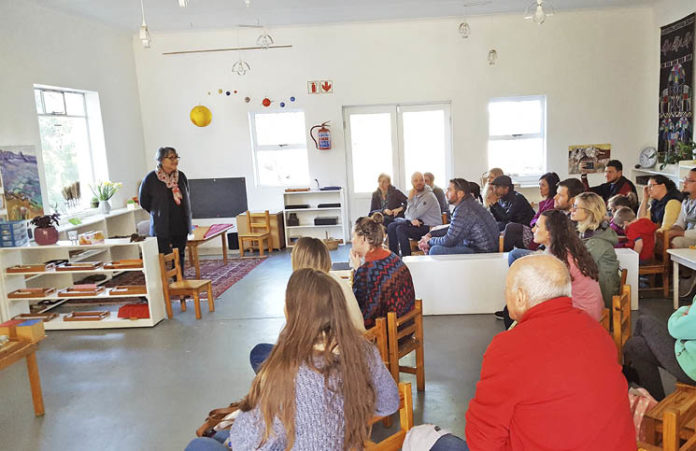
In the current knowledge economy, the focus of education needs to shift from acquisition of information to application: problem-solving, collaboration, creativity and application of concepts in various contexts.
“We must not teach what to think; we must teach how to think,” says Alistair Green, principal of Newberry House, a Montessori school for ages 18 months to 18 years in Somerset West.
“There are a myriad jobs today that didn’t exist five years ago, with so many more to come within the next few years. The question is, how do we prepare tomorrow’s generation today?” asked Green. “What if I told you that one of the best ways to prepare our children for tomorrow lies in an educational model that is 110 years old.”
Green is referring to Maria Montessori developing a revolutionary new type of education model over a century ago which, instead of having children sitting down and listening to an adult telling them what to learn, flipped the system on its head and followed the child.
“Following the child does not mean raising self-centred, narcissistic young people who think that the world revolves around them,” said Green, a graduate of Stellenbosch University who spent 12 years in the UK where he completed his MA in Education and became Assistant Headteacher at Jubilee High School, Surrey.
One of the concerns parents have about Montessori is the perception of too much freedom.
“Children learn best through self-directed learning, so Montessori children are given more freedom of choice than in traditional settings,” said Green.
“But Montessori schools also have structure, with specific materials and activities where teachers prepare the learning environment and provide the necessary structure, support and feedback.”
One of the unique characteristics of a Montessori is the multi-age classrooms, which consist of three-year age ranges. “Children learn to collaborate with learners older and younger than themselves and to respect each other’s strengths, ideas and points of view,” explained Green. “Older children grow in confidence by acting as mentors, and younger children are very receptive to learning from their older peers.”
The Montessori model even extends to the sports field. “We are very grateful to have been selected as one of 6 schools worldwide to pilot the first ever Montessori Sports programme, which forms part of our curriculum,” said Green.
The programme is being developed in collaboration with Cruyff Football (an initiative of the late great Dutch football master Johan Cruyff).
Many people associate Montessori with pre and junior schools. But that is changing, and Newberry House is an accredited Cambridge International Assessment Centre.
“Our High School students follow the Cambridge curriculum, accepted by top universities worldwide. There is a great synergy between Montessori and Cambridge, especially with regards to active learning and independent thinking,” said Green.
For more information visit www.newberryhouse.com

